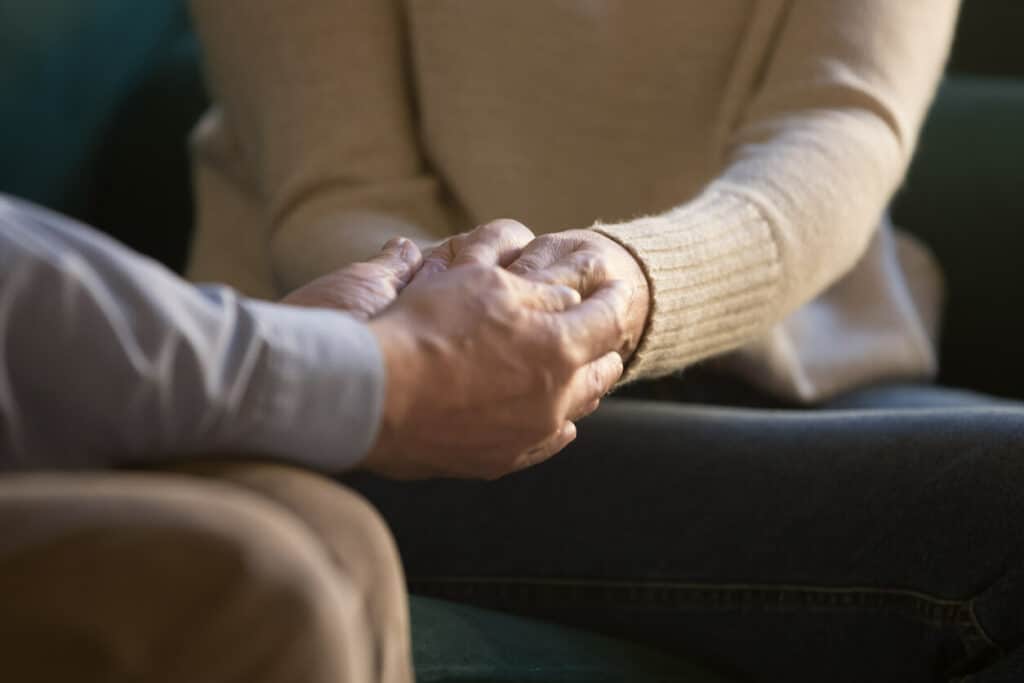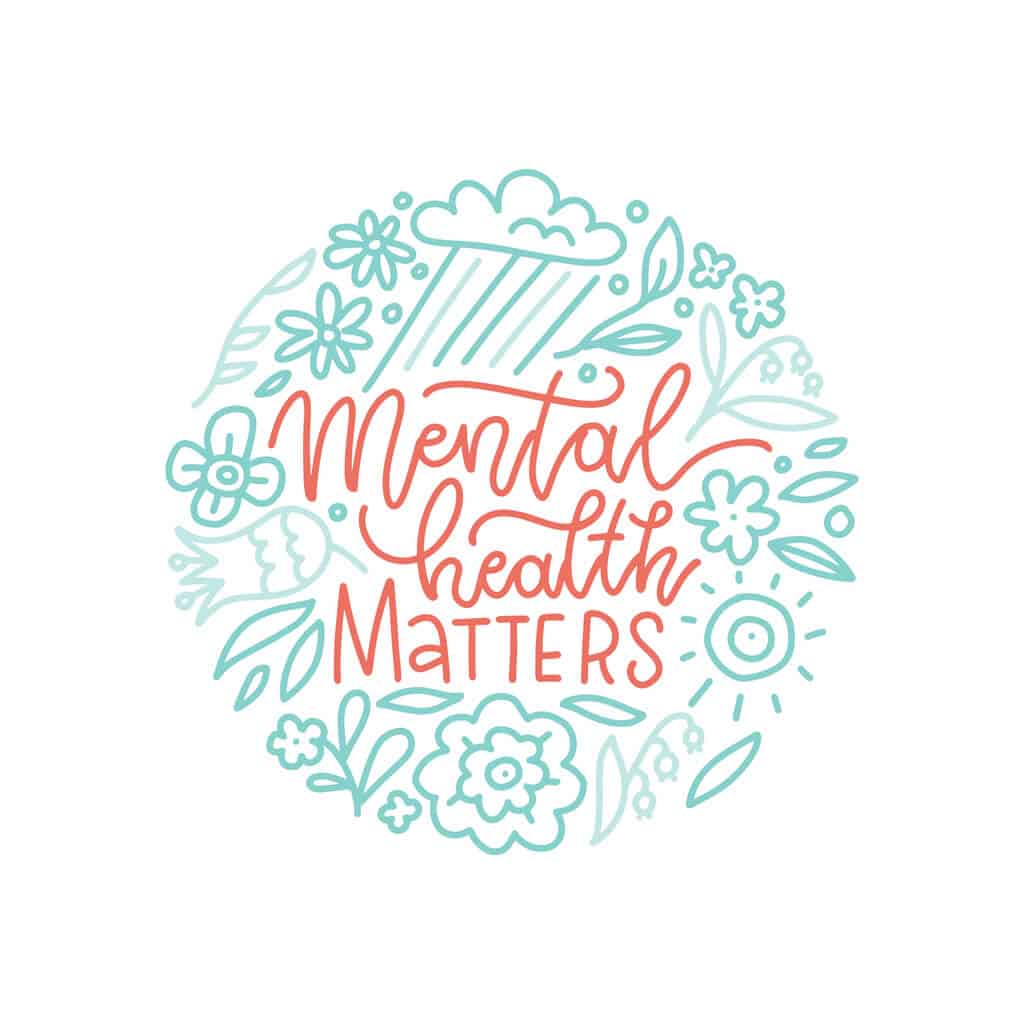
It can be very tough to deal with a loved one’s death, especially if you are their primary caregiver. Every time you consider their impending departure, you’ll probably feel sorrowful, nervous, and quite uneasy. When you understand their condition and are aware of what to expect, you can, therefore, be well-prepared.
You’ll need to mentally, emotionally, and physically prepare yourself for coping with your loved one’s final and dying days. It’s virtually impossible to imagine preparing for the death of a loved one; you wonder where to begin while still trying to figure out how to support them. You may realize there is no easy way or a shortcut to prepare for someone dying. This is something that will sadden you and make you uncomfortable.
Recognizing and understanding that someone is dying is the first step in providing support. There are several things you can do to find the much-needed peace now. When the moment comes, and they are not there, your preparation will make the procedure easier to handle.
Death is a topic that many people search for online to try to better understand. It is a difficult subject to discuss, but it is important to provide accessible resources for those who need them. Many changes and conditions come with the end of life. The main concern is providing the best possible treatment and support for those who are dying, as well as their families and loved ones.
Spend Some Time Thinking About What You Want or Need to Say to Your Loved One in Their Last Days
You should be aware that everyone approaches mortality differently. Your beloved might:
- Share life lessons
- Strengthen ties with friends and family or
- Share memories.
Even though these discussions could be challenging for everyone involved, you must pay attention to your loved one.
You can use this opportunity to communicate everything that you’d like to. Before speaking with a loved one, consider what you would potentially regret leaving unsaid if they passed away. Then put it in writing; you can conduct this discussion in front of a mirror to get some perspective before speaking with a loved one.
Please encourage them to express their frustrations so you can comfort them in their last moments. And please think carefully before speaking since it’s not kind to upset a dying person.
Support and comfort are crucial, regardless of how your loved one spends their final moments. They will greatly appreciate your presence at this trying time.

Spend Quality Time With Your Loved One
Allowing your loved ones to feel your presence is one of the most priceless gifts you can give them in their final moments. Take time from your busy schedule to be with your loved one once you discover their health is worsening.
Listen to them talk about their lives and the past if they can speak. Let them say everything they’d like to and listen regardless of how often you have heard their stories.
If you notice they are concerned about the folks they will leave behind, reassure them. A conversation about your family’s plans will help you do this. For instance, you could tell your father not to worry since your mother will move in with you when you realize he is worried for her.
Be honest with them when you speak to them; let them know whether you are sad, perplexed, or afraid. You don’t constantly have to appear strong; instead, reveal your vulnerabilities to your loved ones. You might believe it’s wrong to subject people to your feelings, but letting go will benefit both of you. If they still have the energy, your loved one will comfort them and feel helpful by doing this.
Being present for a loved one in their dying days shows them you are ready to walk alongside them at their most challenging time. Aid them in overcoming the mental and emotional difficulties that come with death.
You should speak to them if they are not responding at times. Talk to them anyway because hearing is one of the last senses to leave. If it is true for you, let them know you adore them or love them and will be sad to see them go.
These memories you make with your loved one will sustain you in the future. However, if the dying person requests to be alone, give them this, as they may want some privacy.
Read About the Warning Signs of a Dying Loved One

Watching for warning signs of impending death is another method to get ready for the passing of a loved one. As you notice these symptoms, you’ll mentally prepare for their departure.
You should be aware that because everyone is different, their death may not occur as you expect.
A person’s body will begin preparing for death while on their deathbed. Among the warning signals include, but are not limited to
- Most of their senses will go or deteriorate
- Skin discoloration
- Loss of appetite
- Restlessness
- Their breathing pattern will change
- Sleeping most of the time
- Withdrawing socially
- Incontinence
- Urine decrease
If You Think it Will Be Helpful, Learn More About Your Loved One’s Condition and Seek out Palliative or Hospice Care
If you want to aid your loved one, it will be helpful to study their condition. Knowing what they are experiencing will provide you with the knowledge you need to help you overcome the difficulties of losing a loved one. You can prepare for their departure by anticipating what to expect when their condition worsens.
You’ll be aware of the foods they should eat or stay away from, the exercises they should do with your support, and how to make their last days as comfortable as possible.
You can request your loved one to allow you to talk with their health provider about their condition. Visit your local library and check their medical reference books to help you better understand their situation. By doing this, you will be in a better position to understand your loved one when they talk about their condition. You will also be prepared to face your loved one’s condition as it deteriorates.
If you discover that your loved one’s health is too complex to handle on your own, seek palliative and hospice care. It is not a sign of giving up on your loved one to seek palliative or hospice care. It demonstrates your will to acknowledge that they require specialized care that you cannot provide.
The following services are available to your loved one when you seek hospice or palliative care:
- Your loved one will benefit from the expert skills they need during their final days.
- Professional expertise.
- Guide you as a family caregiver.
- They will improve the quality of your loved one’s life.
- Support your loved one so that they will not experience loneliness.
- Respect and dignity. Sometimes our loved one may feel like they have lost their dignity if they have to rely on you and other family members for assistance with activities of their daily living. This is not the case when they have palliative caregivers attending to them.
Provide Physical Comfort

Physical discomfort is something that can happen to someone who is dying. Cancer is one of the most common causes of death for the elderly, and it is important to have a plan in place for the best possible treatment to help them feel better during this time. You can do a few things to make them feel better, but it will depend on what’s making them uncomfortable.
Your loved one might experience discomfort as a result of the following:
- breath problems
- Pain
- digestive problems,
- due to skin
inflammation, itching - Fatigue
- sensitivity to temperature
Support Your Loved One in Managing Their Mental and Emotional Stress
During their final days, you will need to assist your loved one in overcoming any emotional or mental anguish they could be going through. Even if your loved one is intellectually sound in their final days, their illness may cause them to feel nervous or unhappy. So, it would help if you took care of their emotional needs. If your assistance is insufficient, speak with a counselor or an expert with experience dealing with end-of-life issues.
It’s critical to identify the source of any anxieties or concerns your loved one may be experiencing if they are there. Find ways to reassure them if they fear the future or the people they will leave behind. If your loved one worries about dying alone, make plans with family and friends to make sure they are never alone.
To assist your loved one in overcoming their mental or emotional suffering, you might also attempt the following suggestions:
- Create a comforting atmosphere around them.
- If your loved one prefers a quiet place, let them have it.
- Play their preferred playlist if they want to relax with some music.
Make sure their room has soft lighting, and to provide them with physical comfort, massage them or hold their hands.

Seek Spiritual Assistance For Your Loved One
When it comes to how to help someone dying, you should note that they experience the end-of-life journey differently. One person may be in a near-death state for a short while, and others may linger for weeks.
A dying person may maintain a clear mind even as their body deteriorates. On the other hand, someone else can be physically fit yet have declining cognitive abilities. The dying of a loved one should therefore be treated as an individual, and you should try to make their final days as comfortable as possible.
If your loved one is a member of a spiritual community, let them know of their condition. Some of their community members will visit your loved one, offering immeasurable comfort.
Please pay attention to how your loved one envisions their final moments. Some people might prefer to spend their last moments at home with their loved ones. You shouldn’t push someone to seek palliative care if that’s not their wish. Respecting their ultimate desires is vital.

You Should Establish a Support System if You’re a Family Member or Caregiver
You could experience anticipatory grieving in the days leading up to your loved one’s demise.
You will also experience grief after they pass on. Grief can be an incredibly lonely experience, and you must have a strong support system from your loved ones. Although you could still feel isolated even with a vast supporting network, what is essential is to grieve for your loved one until you are ready to move on.
If you don’t already have one, consider looking into alternative support networks. Your friends, the spiritual community, or coworkers could serve as these support groups. One strategy for getting through grief and losing a loved one is to share your story with your support groups.
When you need assistance, don’t be afraid to ask for it. Not feeling okay is acceptable; you do not always need to be a fighter. Before death, allow your loved one’s family and friends to visit.

Schedule Some Time
You understand how draining it may be to care for someone who is dying. You must take it more slowly and entrust the care of your loved one to someone else. You might get burned out if you don’t make time for self-care. You will not help your loved one when you are running on fumes.
If you dedicate 20 minutes a day to self-care, you don’t have to feel bad about it. You can watch a movie, read a book, or listen to your favorite music. You might hang out with your buddies or walk to clear your head.
Even if you are grieving and dreading what lies ahead, it’s crucial to continue having social interactions. Also, you can engage in activities like yoga or sign up for a fitness class—something to distract you from your surroundings.
Talk With Your Loved One About Death
Discussing death with someone who is dying may seem cruel, especially if they are frightened of dying. But discussing mortality with them will make facing your worries easier for you both.
While you explore this delicate issue, consider their coping strategies. Respect your loved one’s decision if you discover they don’t want to discuss death. If they want to talk about their concerns or wants, consider going along with their choice, even if you disagree.
Please do not interrupt or correct them when they are talking about death or their fears. Please give them the freedom to express themselves without judging their decisions. If there is something they wish to accomplish before they pass on, kindly help them achieve it. It’s vital to help them live in the moment, as these memories will help during the coming dark days when they are no longer with you.

Discuss Family Inheritance
Inheritance is a topic most people feel uncomfortable talking about with their loved ones, especially when this person is on their deathbed. However, it’s a topic you should raise when preparing for the death of a loved one.
Discuss your loved ones’ properties with their attorney, asset manager, and financial adviser.
Sometimes you may know the general information regarding their assets but not their location. This information will help your family avoid conflict over funeral arrangements. Additionally, it will help your family respect the deceased’s final wishes.

Discuss Their Final Wishes
One of the most challenging conversations you can have with someone is about their final wishes. Talk about their funeral preferences now, as doing so will simplify things when they pass away. Find out if they have already made arrangements for their funeral and ensure their funeral honors their beliefs.
Understand How to Grieve
It’s common to experience grief after losing a loved one, which sometimes happens unexpectedly. When you start the mourning process, you can find that you can’t get through the sadness.
You’ll recognize your grief when:
- You are extremely sad
- If you realize that you don’t want to interact with other people
- If you become physically or verbally aggressive
- Experience social withdrawal
- If you have crying spells.

You can take a break from your hectic routine to focus on recovery. Inform your employers or professors when you need to spend time alone so that they can adjust your schedule accordingly. During this time, you are away from your responsibilities, process your feelings, and know it’s okay not to be okay.
You can handle your grief by
- writing your thoughts and feeling down in a journal
- Talk about your feelings with your friends or seek professional help from a counselor.
- Tap into your creative side. If you love painting, lose yourself in it, or you could pursue a new hobby like dancing.
Everything may alter daily as you deal with your loss. It is up to you to ensure you eat regularly, keep hydrated, and remain active. Take evening strolls to enjoy nature’s abundance and fresh air.
Identifying If Your Grief Is Healthy or Unhealthy

It’s crucial to comprehend what constitutes grief and what aspects of your feelings are normal. This will enable you to identify any indicators that your grieving is abnormal. When you start hurting others or yourself, you are likely experiencing unhealthy grieving.
In most cases, you will experience acute grief during birthdays, anniversaries, and holidays when you feel the vacuum left by your loved one. When you experience the following, you should know it’s time to seek professional help:
- Having self-harm ideas
- Feeling suicidal
- Extreme sense of hopelessness
- Persistent sadness
- Being preoccupied with the deceased.
Professionals such as doctors and nurses work long hours to ensure that the dying receive the best care possible. The United Kingdom National Health Service has a number of online resources available for those dealing with bereavement and end-of-life issues, including events and support teams.
Takeaway

When the time comes, and you know it is acceptable for your loved one to pass on, it’s essential to address your issues. Accept the inevitable that your loved one is dying. Take charge of the situation by focusing on the here and now.
While it can be difficult to hear the news that a loved one has died, it is important to stay in touch with personal and professional resources to bring the best possible support and view statements on the matter.
Don’t stress over things that are out of your control. Make sure the person you care about is cozy during this time. When it feels too much, get help!
Amy’s Eden Senior Care, in Reno Nevada, is sensitive to the Elderly who are close to death. If you have any questions about death and how we handle this sensitive topic, please contact us. We’d be so happy to give you our information or advice. If your loved one is in our care, we will pay attention to what you have to say and your suggestions for how to manage and give comfort during these difficult times.




